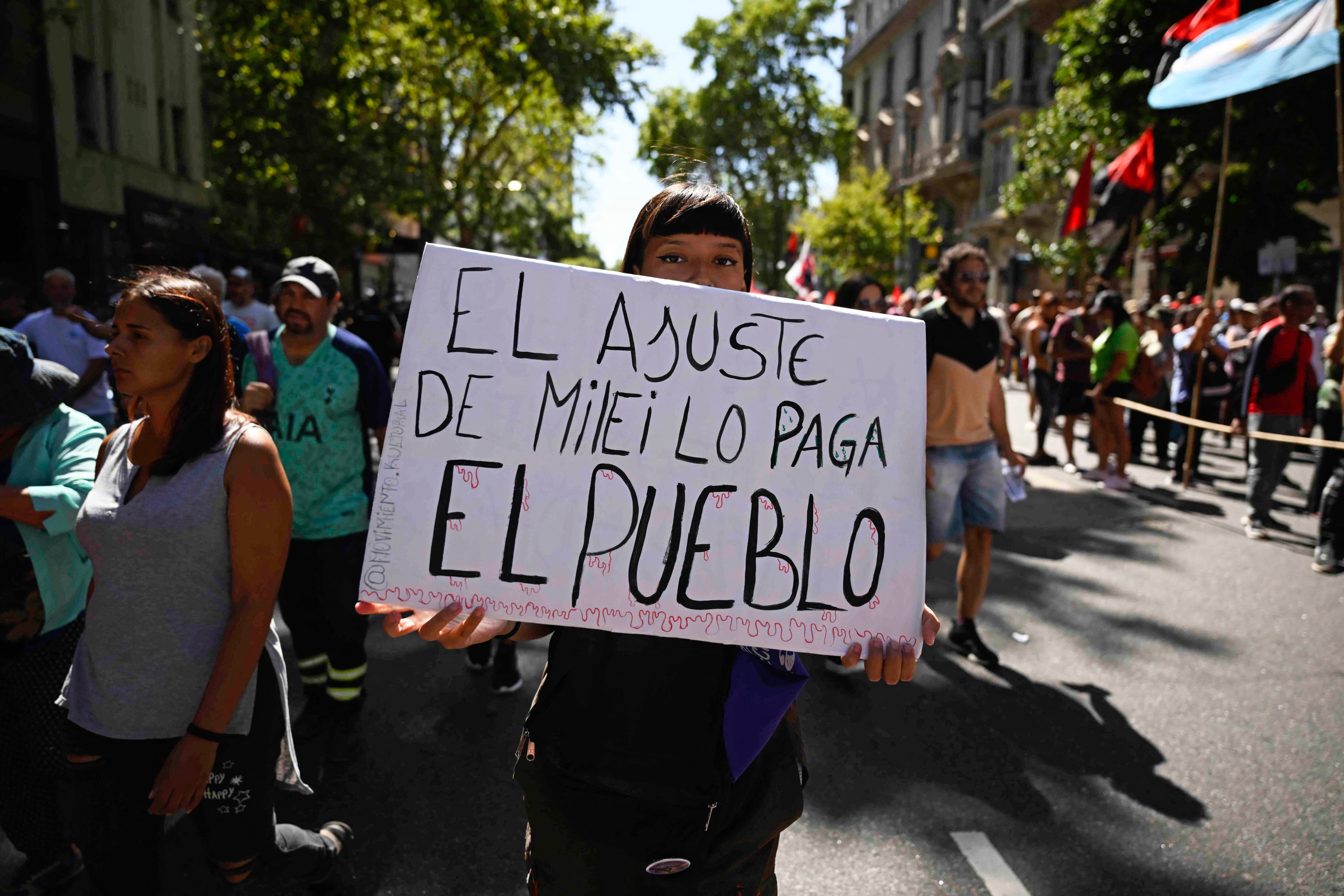The first general strike held on Wednesday, the 24th, in Argentina by the General Confederation of Labor (CGT), the country’s main trade union federation, was a demonstration of strength against the reforms proposed by President Javier Milei.
TO LOOK: Argentine unions “will continue to fight” to implement the reforms proposed by Milei
However, the appearance of the streets of Buenos Aires was far from being a place of total unemployment. There was open commerce, activity in restaurants and normal circulation of public transport, although there were bookstores and theaters, which had their doors closed. Air transport was also significantly affected, due to the cancellation of 295 flights and the rescheduling of another 26 by Aerolíneas Argentinas.
In dialogue with El Comercio, Argentine political analyst Santiago Rodríguez Rey analyzes the scope of the general strike and, although the Milei government described the day as a failure, the expert highlights that the president faces a key week in which he will have to resort to dialogue for your Omnibus Law to be approved in Congress.
–How much does Wednesday’s strike impact the measures that Milei wants to impose?
More than a strong impact on the measures, the strike establishes a position of the workers’ confederation and raises the points on which they do not agree. It is also a way of establishing what the relationship between unions and the government will be. It will be important to see how strong the transport strike that began today at 6 pm will be.
–Although it was a show of force, do you consider the attack to be forceful?
It was important at the federal level. There were mobilizations in various parts of the country. I wouldn’t say it was hard-hitting, but important.
–During the day, the debate on the Omnibus Law was postponed until next week. Is it because the Government lost support to approve the project’s economic package, as the local media say?
Instead of losing support, what the government did at the last minute was to maintain its position. After obtaining the signatures on the opinion, which was what he was most looking for, he closed ranks in his opinion. But the government is certain that it does not have the votes to move forward.

–How difficult will it be for Milei to approve the Omnibus Law?
The Omnibus Law had significant difficulties from the beginning, in part due to the DNU’s enforcement action, which already led to clashes with Congress, and with little openness to dialogue. So the dialogue and negotiations around the law occurred more due to the impossibility of moving forward than anything else. It must be taken into account that even if the law is approved in general, this does not mean that the articles will be approved. We could have a law generally approved, but most of its titles, chapters and sections rejected, so we could have an empty shell.
–How are the next debates planned and what is the scenario that opens up now?
The fact that the sessions have been postponed until next week cools down the situation a little and will allow dialogue to resume so that the project can continue to change. This opens up communication.

–What is Milei’s biggest challenge?
His biggest challenge has always been setting priorities and he continues to have this problem. Both its Omnibus Law and its Necessity and Urgency Decree lack priorities, they propose many things together. It is interesting as a proposal for decisive change for Argentina, but, due to the difficulties it has in moving forward, it may continue to be a piece of communication and not a true bill. Therefore, the dialogue that will take place in a week will have to establish Milei’s priorities within his law, which will also establish priorities within his economic plan and his government program.
–How do you expect the social outlook in the coming weeks?
There are proposals to hold marches and mobilizations around next Tuesday’s session. We have to see how they materialize and if they materialize. Changing the date of the session makes this strike somewhat isolated because the session will be far from the day of the strike. Furthermore, there will be no new economic activity data, in general it will be a week of little information, unless some tragic event happens.
Source: Elcomercio
I am Jack Morton and I work in 24 News Recorder. I mostly cover world news and I have also authored 24 news recorder. I find this work highly interesting and it allows me to keep up with current events happening around the world.

:quality(75)/cloudfront-us-east-1.images.arcpublishing.com/elcomercio/AVNRRDFZQFFWHPTFW3JT3Z6CHM.jpg)

:quality(75)/cloudfront-us-east-1.images.arcpublishing.com/elcomercio/DS2NUGPF3REOFB7QUFCGKIH57U.jpg)
:quality(75)/cloudfront-us-east-1.images.arcpublishing.com/elcomercio/GTLM4W3GQNDQ5PDQH4MTD5R3II.jpg)
:quality(75)/cloudfront-us-east-1.images.arcpublishing.com/elcomercio/2GIWGRTUSBEKJNO3HLXMSFO3ZA.jpg)
:quality(75)/cloudfront-us-east-1.images.arcpublishing.com/elcomercio/OUCK3CDJVBCFDGYF5OJMJXFZQI.jpeg)
